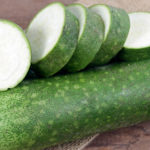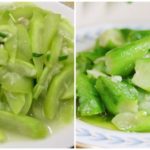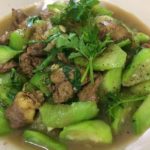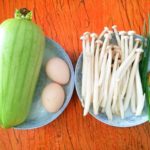Gourds, pumpkins, squashes, and eggplants
According to experienced gardeners, these climbing plants have very low pesticide residues on the fruits, so they are considered safe and healthy. Additionally, these plants are very resilient and can grow well without the need for pesticide spraying.
Jerusalem artichokes
Jerusalem artichokes are a great food for health due to their nutrients and low pesticide content.
Jerusalem artichokes have deep roots that grow inside the soil. The roots are thick, with long roots, 5-6mm in diameter, light brown in color, and soft. The stems that grow in the air are covered in scars from fallen branches. The thick roots are not severely damaged by pests, making this vegetable safe for consumption.
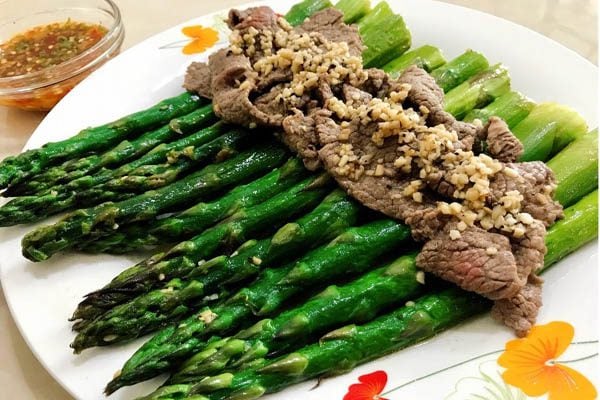
Bottle gourd
Bottle gourds are relatively safe vegetables because insects do not eat them much, so they require less pesticide use compared to other vegetables like cabbage or peas. In particular, aromatic vegetables naturally repel insects. These vegetables can grow naturally without the need for pesticides. Enjoying a bowl of bottle gourd soup with shrimp on a summer or fall day is wonderful. This vegetable is nutritious, cooling, detoxifying, and very benign.
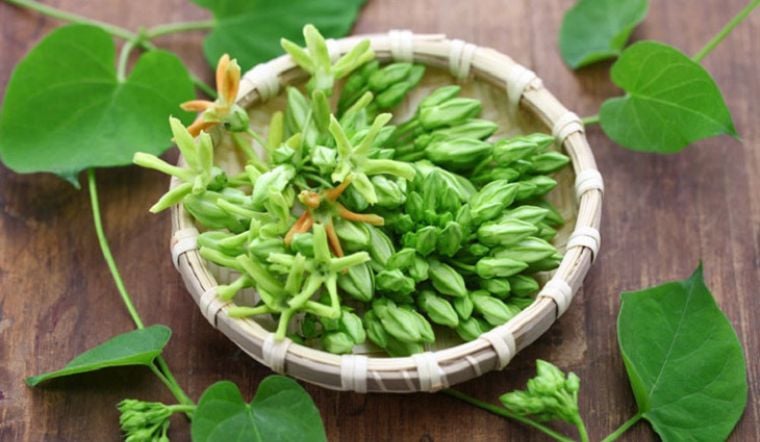
Amaranth, water morning glory, purslane
Because these vegetables are not favored by insects, they also require less plant protection measures compared to other vegetables. These vegetables usually grow wild, and they can grow well naturally without the need for chemicals. Therefore, taking care of these vegetables is simple and not complicated, so they rarely need chemical fertilizers. When you go to the market, choose these types of vegetables for safe and nutritious options.
30-Year-Old Chef Reveals: Cooking Pumpkin, Bottle Gourd, or Winter Melon? Throw It Away Before It’s Too Late
This is a common concern for many people when cooking gourds, such as bottle gourd, sponge gourd, or bitter gourd, and suddenly encountering a slight bitter taste. Could this be a sign of poisoning?



























